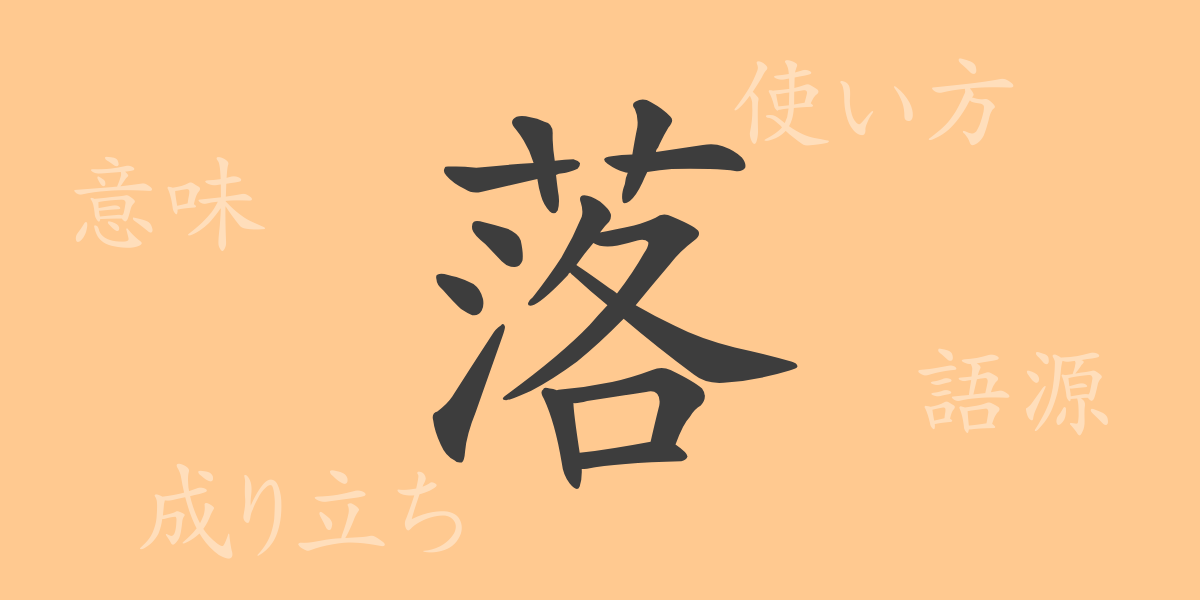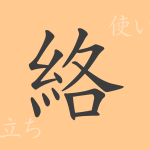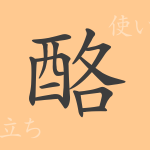The Japanese language has a unique ability to express emotions and scenes with subtlety, and one of the characters that contribute to this richness is the 常用漢字(jouyou kanji) “落” (raku). From everyday conversations to literary works and proverbs, the diverse meanings and usages of this single character reflect the depth of Japanese culture. In this article, we will explore the origins of “落” (raku), its various uses, and the idioms and phrases that resonate with the Japanese heart.
The Origin of “落” (raku)
The kanji “落” (raku) originated in ancient China. It has its roots in pictographs, representing something falling from a tree. Over time, its form evolved, settling into the shape we recognize today. The creation of “落” (raku) is a testament to ancient people’s observations of natural movements and their representation through characters.
Meanings and Uses of “落” (raku)
The kanji “落” (raku) primarily denotes actions like “falling” or “dropping.” However, it also signifies failure or setbacks in terms like “落選” (rakusen – losing an election) and “落第” (rakudai – failing a grade). It is used to describe mental states in phrases like “落ち着く” (ochitsuku – to calm down) and “落ち込む” (ochikomu – to feel depressed). Additionally, it has cultural applications, as seen in “落語” (rakugo – traditional Japanese storytelling).
Readings, Stroke Count, and Radical of “落” (raku)
The kanji “落” (raku) has various readings in Japanese.
- Readings: On’yomi (音読み) is “ラク” (raku), Kun’yomi (訓読み) is “お.ちる” (o.chiru) and “お.とす” (o.tosu)
- Stroke Count: 12 strokes
- Radical: 艸 (kusakanmuri – grass radical)
Idioms, Phrases, and Proverbs Using “落” (raku)
There are numerous idioms, phrases, and proverbs that include “落” (raku), showcasing the richness of Japanese expression. For instance, “落花流水” (rakka ryuusui – the fleeting nature of beauty) evokes a sense of impermanence, while “一落千丈” (ichiraku senjou – a rapid decline) describes a sudden deterioration. “落ち着かない” (ochitsukanai – feeling uneasy) indicates instability of the mind, and “落とし穴” (otoshiana – a pitfall) refers to hidden traps or dangers.
Conclusion on “落” (raku)
The depth and diversity of meanings encapsulated in a single kanji symbolize the subtlety and richness of the Japanese language. The various expressions involving “落” (raku) are intricately linked to our daily lives, playing a crucial role in conveying culture and emotions. We hope this article helps you rediscover the charm of “落” (raku) and enhances your appreciation of the nuanced expressions in Japanese.

























